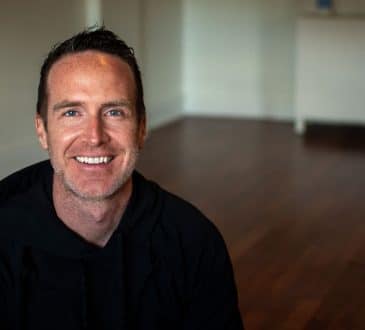Tech Talks Interview Zilch Founder Philip Belamant on Innovative BNPL Model

Last month, technology expert Dave Savagid welcomed Zilch’s CEO and founder Philip Belamant to Tech Talks, a podcast that tackles technology challenges in twice-weekly episodes. In this episode, Savage and Belamant discussed how buy-now-pay-later (BNPL) provider Zilch has crafted an original approach to market, and Belamant revealed his vision for responsible consumerism, explaining how Zilch focuses its offerings around customer needs, instead of retailer needs.
Belamant emphasised that, unlike many competitor BNPL providers, Zilch helps consumers spend responsibly and avoid debt-related issues. This has cropped up repeatedly in recent headlines, especially as Zilch is now one of the few BNPL providers that meets the new Financial Conduct Authority (FCA) regulations.
Here, we’ll take a look at some of Belamant’s insights from the Tech Talks interview and delve into Zilch’s plans to accelerate responsible consumerism in the UK BNPL market.
How Zilch Works
Give us a bit of background and a synopsis of what the platform is.
I think the four words on everyone’s lips at the moment are ‘buy now pay later’. And a lot of people group Zilch into this bracket because our customers can pay in full with our product. But, effectively, Zilch allows a customer to split the cost of anything they’re purchasing online into four payments. So, they pay 25 percent on checkout and 25 percent every two weeks. This means they can pay for the entire good over six weeks.
The fundamental difference between traditional BNPL and Zilch is that we’re a direct-to-consumer provider. So, what you find with other providers is they sign up retailers like ASOS, Nike, and Adidas, etc. These retailers are customers of the BNPL provider. Then that customer, the retailer, offers payment instalment plans when the shopper is checking out.
Zilch does things differently. We don’t go via retailers; we go directly to customers and offer them the experience to use our product wherever they like. The fundamental difference and alignment is that while traditional BNPL providers focus on retailers, we focus very much on customers. So, some people compare us to a mix between BNPL and Amex: all the convenience of a card, but all the transparency and ease of use of BNPL. That’s why our customers use our service more significantly than most other providers.
Zilch’s History
How long has Zilch been going?
We set the business up at the back end of 2018. But it takes a little while to get everything in place, get bank accounts open, and convince the first few people that you feel will be really valuable to the team to join you. So, at the back end of 2018, we were getting the core team together and setting up the corporate structures. We only started building the product in 2019.
We’ve been fortunate to be in a position where we’ve had people willing to back the vision of the business through COVID. I think it’s come down to the tenacity of the team and the amount of time, energy, and love they’ve poured into the product. We’ve even had a couple of investors say to us: ‘we really made the decision to invest because the underlying fundamentals of the company are strong. If we go and we look at your Trustpilot reviews and compare those with others, it’s chalk and cheese’.
That’s where we’ve come from, this position of responsibility: let’s get that license, let’s be regulated, and let’s offer customers the most affordable way to split payments. It seems to be resonating. We’re humbled and excited by the amount of support we’ve gotten from consumers. We’re growing at about 70,000 customers a month at the moment and investment alike.
How Zilch Attracts Customers
How are you attracting customers? I know you have. I know you’ve grown through the pandemic, which is fantastic to hear.
Some providers market themselves to customers through the checkout page. This is what ASA has raised with one of the big providers recently in the UK. Picture the scene: you’re scrolling through Instagram, and you see a pair of shoes that you like. It’s one of these new drop-shipping-type websites. So, it’s a no-name brand, you go to their page, and you see the shoes – £80 – but you can pay £20 today.
I think there must be an argument made where this could be a case of impulse buying. Therefore, there may be a case of people overburdening themselves by going into debt when they otherwise might not have chosen to do so. Because, unfortunately, at the checkout page, there’s not enough time to explain all the T&Cs. So, incumbents in the market are trying to make it quicker and faster to check out because they’re under pressure from their customer – who’s the retailer – saying ‘I don’t want basket abandonment.’
Meanwhile, Zilch’s customers do their full signup with Zilch, KYC onboarding, identity verification, agree to the terms and conditions, and understand what the product is. They’re signing up for this product that allows them to split the cost of something. In other words, they know this is a debt instrument. It works in the same way that Amex can give you a cool deal or a discount at someplace and they can market that to you. That’s responsible marketing because you understand the implication of using your Amex card is you have to pay that balance back.
How Customers Use Zilch
How can customers use Zilch to pay ‘wherever they like’ when everything’s online and we’re stuck at home?
We teamed up with MasterCard, a partner of ours, in a previous business of mine. We went back to them with this idea and said, ‘Look, all of these other BNPL providers have proprietary systems, and they’re integrating one retailer at a time.’ It’s quite cumbersome for the retailer and the rollout is quite slow. More importantly, for the customer, it’s a little confusing. Because you go to one website today, and there’s one provider and you go to another website tomorrow and there’s another provider. It can become a little difficult to track where your money is and what you’ve spent.
So, our idea with Zilch was to say how can we offer the same functionality, which is effectively being able to pay overtime for free – no interest and no fees? How can we bring that directly to customers and let them go where they like, wherever they like? That includes Amazon, eBay, Etsy, Not On The High Street etc. So, when a customer signs up for Zilch, they get issued a virtual MasterCard, which they can save to their browser, Apple Pay, Samsung Pay, and Google Pay. They can split the cost of anything at any retailer that accepts MasterCard.
That’s just for online; there hasn’t been much point launching our tap-to-pay overtime product with everything going on today. But we certainly want to be part of the solution for the high-street recovery when COVID-19 finally tapers off. We’ll be launching our tap-to-pay overtime system very shortly, which will be the first of its kind in the country. This will allow our customers not only to shop online and pay overtime for free, but to shop anywhere in store and pay overtime too.
Why Zilch Set Up in London
As someone who’s come over to the UK from South Africa, it’s heartening to hear a founder with a success story, post-Brexit, in the financial services sector in London.
London was the place we wanted to be. It feels very much like one of the major tech hubs in the world today. From a fintech standpoint, I think it’s a phenomenal place to set something like this up. Obviously, before COVID, you had the added benefit of people from different backgrounds, cultures, and experiences all in one place in London. There’s nothing better than diversity like that to go and build a truly phenomenal product. We don’t just have a one- or two-sided view of things. I’m very excited and happy that we’ve got our headquarters in London, and this is where we operate from.
Zilch’s Post-Pandemic Plans
What’s your thinking on what happens post-pandemic?
I think we’ve played a fundamental role during COVID. We’ve certainly seen people relying on services like ours. We’ve introduced products like Snooze to give people more time to make repayments, particularly when we use open banking data, and we can predict a payment is going to be due between paydays. We’ve done a lot of good during this period, and we’ve certainly grown tremendously.
I think the future for our product, post-COVID, is to look at how else we can help customers get maximum value out of how they transact. BNPL is the starting point for us. We think it’s a phenomenal entry point and we’re doing it, we believe, substantially better than most others. Soon, customers will be able to use Zilch to pay for everything and receive discounts, deals, and cashback. They’ll also be able to spread the cost of something over time anywhere – online and in store. This way, we can provide a view for a customer when they check out as to what’s the best decision for them based on their cash flow. In other words, should you be splitting this? Or do you think you should actually pay for this now?
That’s the direction of travel for us. We feel that might go a long way in helping people manage cash flow as we creep out of this COVID period, furloughs come off, and perhaps some of those jobs aren’t quite yet back. We want to play a big role in helping people there.
Hybrid Working
I assume you won’t go back to five days a week in the office (if you ever worked that model)?
For now, we’re all remote and we’ve seen what I think a lot of other companies have seen. In the beginning, productivity went through the roof, and then, as time elapsed, that tapered off in the first lockdown. Then, of course, we got a bit of relief when we started going back to the office. Then the second lockdown came around, and we’re seeing the same. I think people are tired of being on their own. People like to be around the energy of other people, especially when you’ve got a startup like ours, where we’ve gone from a team of 13 to almost 60 people, all hired through COVID, which is quite bizarre.
We’ll probably adopt a hybrid model. So, we want to get the office set up again. I think it’s a great place for people to feed off the energy, get some ideas from colleagues, touch base, and we’ve got a young team as well. People want to interact with other people. They don’t want to sit in a room share or flat share on their own, week in and week out. So, we have a young team; they want to come in and interact, but at the same time, I think we want to offer the flexibility all of us have come to appreciate.
I can certainly say the same for myself because we were actually expecting our first in May. Flexibility has broadened our minds, during COVID-19, to what’s possible. So, we’ll probably use a hybrid model where people can come together and feed off their energy, but also take time to do the things that are important to them. We’ve found that sort of frame of mind for our team is vital to people being productive.
You can learn more about Zilch on its website and listen to the full episode here.
About Zilch
As the first BNPL provider to integrate open banking data into customer affordability assessments, Zilch is redefining what it means to offer a real solution in the buy-now-pay-later industry. The BNPL leader dedicates itself to protecting shoppers and, unlike many competitors, refuses to catch shoppers out with hidden fees and late payments. Instead, Zilch runs automatic assessments every time a shopper goes to make a purchase. This safer way of shopping attracts over 70,000 customers to Zilch every month.
To sign up for a Zilch account, you just need your debit card, phone number, email address, and postal address.
Bring the best of the CEOWORLD magazine's global journalism to audiences in the United States and around the world. - Add CEOWORLD magazine to your Google News feed.
Follow CEOWORLD magazine headlines on: Google News, LinkedIn, Twitter, and Facebook.
Copyright 2025 The CEOWORLD magazine. All rights reserved. This material (and any extract from it) must not be copied, redistributed or placed on any website, without CEOWORLD magazine' prior written consent. For media queries, please contact: info@ceoworld.biz








